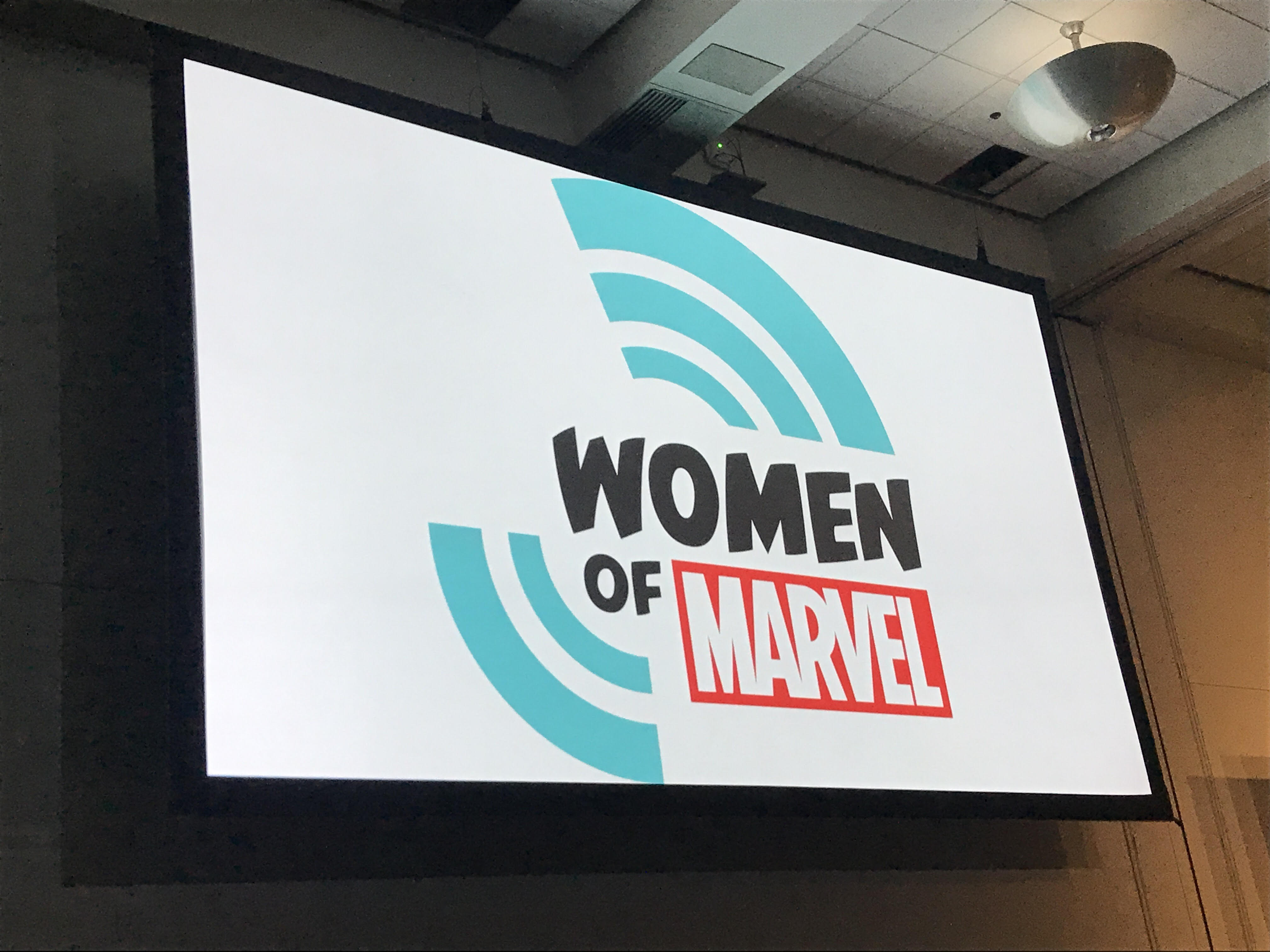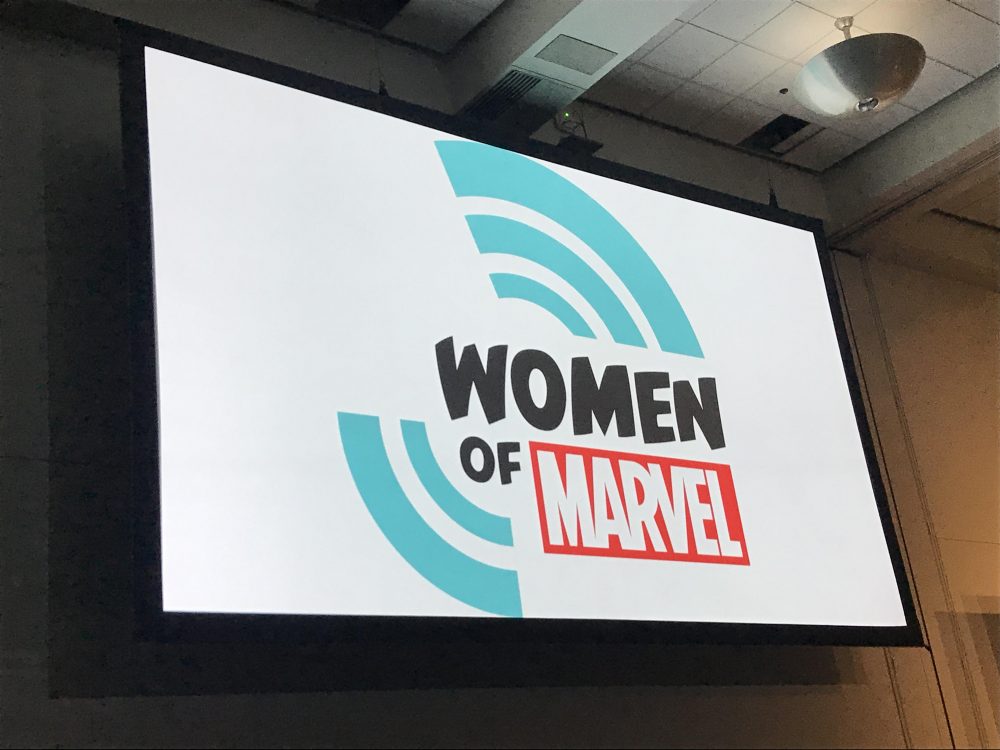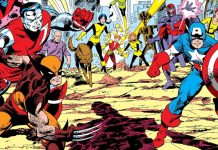By Rachel Maurer
Sunday afternoon signifies the beginning of the end at SDCC, but between last-minute shopping and hotel check-outs, fans made time to pack into the Women of Marvel panel for lively conversation and Q&A with top industry creatives. Led by producer Judy Stephens, the full lineup consisted of Sana Amanat (content development director), Lorraine Cink (host and writer of THWIP! and The Marvel Minute), Margaret Stohl (Captain Marvel), Marvel newcomer Rainbow Rowell (Runaways), Christina Strain (Generation X), Mariko Tamaki (Hulk), and Alanna Smith (editor).
The panel began on a bittersweet note with the news of Flo Steinberg’s passing. Many of the panelists have worked directly with Flo at some point in their Marvel careers, noting that she was more than Stan Lee’s assistant – she was the original Woman of Marvel, someone who forged a path for female comics creators and whose legacy will continue to do so. One major indicator of this is the panel itself, a useful benchmark for progress in gender equality. Nine years ago Marvel had zero female-led titles, while this year’s panel had nearly 20 on the roster.
Beyond the books themselves, women have guided marketing and community efforts such as podcasts and original video programming. Stephens works on Marvel Becoming, an online series spotlighting cosplayers which is now in its second season. The series allows cosplayers to not only show off their hard work but digs a little deeper into what the characters and stories mean to them. When Cink isn’t developing video content she also writes, putting out titles such as Marvel: Absolutely Everything You Need to Know and Ultimate Marvel (coming in September). Both titles collect facts and illustrations in a coffee table book format, making them useful for comics newbies and perfect for veteran readers and collectors alike.
A 30-minute Q&A touched on the atmosphere of the industry overall, which has seen a dramatic shift in terms of gender equality over recent years but, like the rest of society, still has a ways to go. Strain pointed out that she’s worked with women, people of color and LGBT+ folks during the entirety of her nearly 15 years at Marvel, and said she sees the industry facing other, more immediate challenges such as creator burnout and low pay rates. Amanat agreed, stating, “If you work in comics, everyone is broke”. While sexism is certainly still an issue, Tamaki noted social media has provided the ability to immediately share a bad experience with a wide audience, whereas in the past such things may have remained whispers, relatively easy to sweep under the rug. Stephens’s advice is to never be afraid to speak up or be yourself, to which Amanat adds: “When you know who the villains are, it’s time to be the hero”.










Comments are closed.